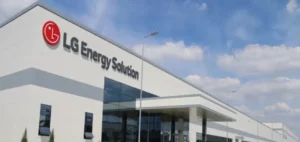Akira Yoshino, co-winner of the 2019 Nobel Prize in Chemistry for his work on lithium-ion batteries, can take credit for the upheaval in the automotive and technology sectors.
Akira Yoshino talks about next-generation batteries
Yoshino spoke to Reuters about the next generation of electric vehicle batteries, the potential for shared autonomous electric vehicles that can recharge, the prospects for hydrogen fuel cell vehicles and the possibility thatApple could lead the convergence of the automotive and IT industries in future mobility.
Edited transcript of the interview:
Reuters: What technical innovations – in design, chemistry and materials, even in processes – could keep lithium-ion as the dominant chemistry in EV batteries, and for how much longer?
Yoshino: There are two main areas of innovation that would be key.
One would be new cathode materials and anode materials.
The second would be the system where the EV is used.
In other words, how people will use electric vehicles, and how they charge and discharge them.
Wireless charging
Reuters: How long before wireless charging of electric vehicle batteries becomes a reality, whether via the platform or solar panels on the vehicle or by other means?
Yoshino: The basic technology for wireless charging is not a problem.
The problem is how to apply it in a practical system.
There are two possibilities.
One is cars that are parked in a certain location where wireless charging is available.
The second is while the car is in motion.
This probably won’t be on every road, but on some roads where it’s available, it might be possible.
If you think about autonomous electric vehicles, the vehicles will know when they need to recharge and, on their own, drive to the charging station.
This kind of situation may be practical sooner than you think.
What about hydrogen?
Reuters: Toyota and Honda are selling a small number of fuel cell electric vehicles, but the hydrogen infrastructure to support fuel cells doesn’t seem to be on the horizon any time soon.
Yoshino: With the fuel cell vehicle, there are challenges on technology and costs, but you can overcome them.
If you think longer term, from 2030 to 2050, shared autonomous vehicles will see the case.
Hypothetically, an autonomous vehicle could be powered by a gasoline engine, it could be electric, it could be a fuel cell.
Whatever the power source.
But it has to replenish its energy somehow.
If the vehicle can’t do this automatically without human intervention, the system makes no sense.
The same would apply to petrol or hydrogen.
In this sense, the electric vehicle is the one that can replace its energy automatically.
What does the future hold for mobility?
Reuters: What else should we know about the future of mobility?
Yoshino: Right now, the automotive industry is thinking about how to invest in the future of mobility.
At the same time, the IT industry is also thinking about the future of mobility.
Somewhere, at some point, with the automotive industry and the IT industry, there will be some kind of convergence for the future of mobility. Tesla has its own independent strategy.
The one to watch is Apple.
What are they going to do?
I think they might announce something soon.
And what kind of car would they announce?
What kind of battery?
They probably want to get in around 2025.
If they do, I think they have to announce something by the end of the year.
That’s just my personal guess.





















